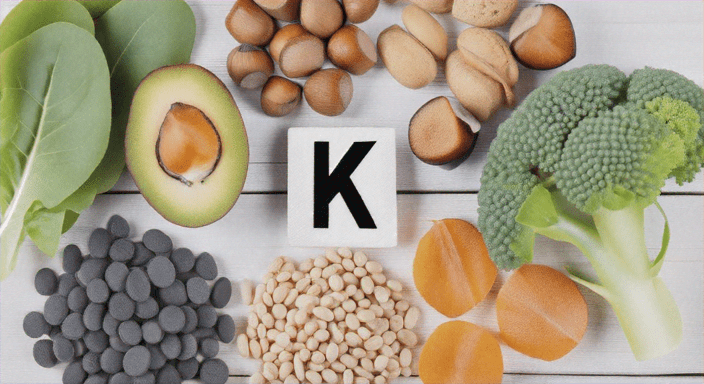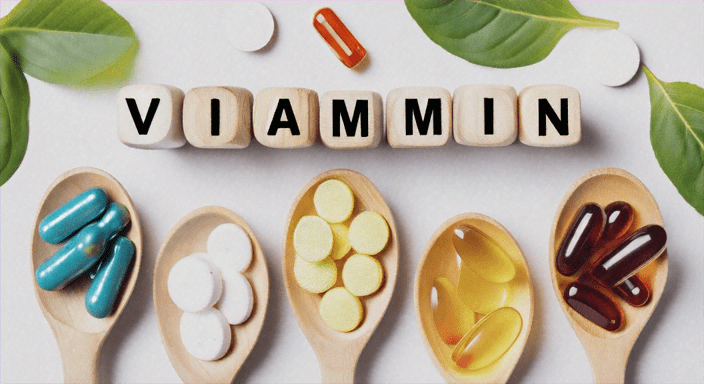Millions of people globally suffer from arthritis, a prevalent condition characterized by joint pain and inflammation. This article delves into essential vitamins that aid in managing arthritis, their mechanisms, and dietary incorporation strategies.

Benefits and Daily Recommended Intake
The subsequent table delineates the daily recommended intake (RDI) for each vitamin, alongside a concise overview of their advantages for arthritis sufferers.
| Vitamin | Recommended Daily Intake (RDI) | Arthritis Benefits |
|---|---|---|
| Vitamin D | 600-800 IU | Reduces inflammation, promotes joint health |
| Vitamin C | 75-90 mg | Supports collagen production, reduces cartilage loss |
| Vitamin E | 15 mg | Combats oxidative stress, reduces joint pain |
| Vitamin K | 90-120 mcg | Supports bone mineralization, aids in cartilage repair |
| B Vitamins | B6: 1.3-2 mg, B12: 2.4 mcg | Reduces inflammation, supports nerve function |
Vitamin D: Enhancing Bone Health
Vital for maintaining robust bones and joints, Vitamin D aids calcium absorption, crucial for bone strength.
Sunlight, fatty fish like salmon and mackerel, fortified foods such as milk and cereal, and supplements are rich sources of Vitamin D. The daily intake of Vitamin D, typically 600 to 800 IU for adults, may vary based on age and arthritis severity, necessitating consultation with a healthcare provider.

Vitamin C: Bolstering Collagen Production
Vitamin C is indispensable for collagen synthesis, a protein vital for cartilage structure in joints. Its anti-inflammatory properties make it advantageous for arthritis sufferers. Regular Vitamin C intake can mitigate cartilage loss and shield joints from further deterioration.
Fruits and vegetables, especially citrus fruits like oranges, strawberries, kiwi, bell peppers, and broccoli, are prime sources of Vitamin C. The daily intake recommendation is about 75 mg for women and 90 mg for men, though higher consumption may benefit arthritis patients.

Vitamin E: A Robust Antioxidant
Vitamin E, a powerful antioxidant, combats oxidative stress, which can aggravate arthritis symptoms. It may also decelerate arthritis progression by safeguarding cells from damage.
Nuts, seeds, and vegetable oils like sunflower and safflower oil are excellent Vitamin E sources. The daily intake recommendation is 15 mg, generally achievable through a balanced diet, though supplements are available for those requiring higher doses.

Vitamin K: Crucial for Bone and Cartilage Health
Vitamin K is pivotal for bone health, facilitating bone mineralization to ensure strength and resilience.
Leafy green vegetables such as kale, spinach, and broccoli, along with certain oils like soybean and canola oil, are rich in Vitamin K. The daily intake recommendation is approximately 90 mcg for women and 120 mcg for men.

B Vitamins: Mitigating Inflammation and Supporting Joint Function
B Vitamins, particularly B6 and B12, are crucial for reducing inflammation and supporting nerve function, beneficial for managing arthritis symptoms.
Foods abundant in B vitamins include whole grains, meat, eggs, dairy products, and legumes. The daily intake recommendation for Vitamin B6 is about 1.3 to 2 mg, while for Vitamin B12, it is approximately 2.4 mcg. Supplementation may be necessary for those with deficiencies or heightened needs due to arthritis.

Food Sources of Essential Vitamins
The following table offers a quick reference for foods rich in the essential vitamins discussed. Incorporating these foods into your diet can help ensure you obtain the necessary nutrients for managing arthritis symptoms.
| Vitamin | Food Sources |
|---|---|
| Vitamin D | Salmon, mackerel, fortified milk, egg yolks, sunlight |
| Vitamin C | Oranges, strawberries, kiwi, bell peppers, broccoli |
| Vitamin E | Almonds, sunflower seeds, spinach, safflower oil |
| Vitamin K | Kale, spinach, broccoli, soybean oil, canola oil |
| B Vitamins | Whole grains, meat, eggs, dairy products, legumes |
Recommended Brands and Products
Selecting high-quality vitamin supplements is crucial to ensure you receive the necessary nutrients for joint health. Below is a table of recommended brands, along with their advantages.
| Brand | Advantages |
|---|---|
| Nature Made | High-quality, USP-verified, widely available |
| Garden of Life | Organic ingredients, non-GMO, suitable for those with dietary restrictions |
| Nordic Naturals | Highly purified, excellent for Vitamin D and Omega-3 supplementation |
| Thorne Research | Clinically tested, recommended by healthcare professionals |
| Pure Encapsulations | Hypoallergenic, free from common allergens, high bioavailability |
Additional Considerations Beyond Vitamins
While vitamins are essential for managing arthritis, other factors are crucial for alleviating symptoms and enhancing joint health. Key areas to focus on include:
-
Maintain a Healthy Weight: Excess weight exacerbates joint stress, particularly in the knees, hips, and lower back. A balanced diet and regular exercise can significantly reduce joint pain and slow arthritis progression.
-
Stay Hydrated: Adequate hydration is vital for joint lubrication and overall health. Water maintains cartilage elasticity, reducing joint stiffness and pain likelihood.
-
Avoid Inflammatory Foods: Foods high in refined sugars, trans fats, and processed meats can increase body inflammation. An anti-inflammatory diet rich in fruits, vegetables, whole grains, and healthy fats can help manage arthritis symptoms.
-
Consider Omega-3 Fatty Acids: Known for their anti-inflammatory properties, Omega-3s are found in fatty fish, flaxseeds, and walnuts. Supplementing with Omega-3s may reduce joint pain and stiffness in arthritis patients.
-
Consult Your Healthcare Provider: Regular check-ups can monitor arthritis progression and adjust treatment plans. Discussing your diet, exercise routine, and supplements is essential for effective condition management.
Exercise and Daily Activities to Relieve Arthritis Pain
Staying active is crucial for managing arthritis symptoms, but choosing the right exercises and performing them correctly is vital to avoid joint damage. Here are some exercise tips and daily activities that can help alleviate arthritis symptoms:
-
Low-Impact Aerobic Exercises: Activities like walking, swimming, and cycling maintain cardiovascular health without straining joints. These exercises improve circulation, strengthen muscles, and increase flexibility.
-
Strength Training: Building muscle strength around affected joints provides better support and reduces pain. Focus on low-weight, high-repetition exercises targeting major muscle groups. Resistance bands and light weights are excellent tools for these workouts.
-
Stretching and Flexibility Exercises: Stretching maintains joint flexibility and range of motion. Incorporate gentle stretching exercises like yoga or tai chi into your daily routine to prevent stiffness and improve joint function.
-
Balance and Stability Exercises: Improving balance reduces fall and injury risks, crucial for those with arthritis. Simple balance exercises, such as standing on one foot or using a balance board, can be beneficial.
-
Listen to Your Body: Avoid overexertion, especially during flare-ups. Pay attention to how your body feels during and after exercise, and adjust your activity level accordingly. If an exercise causes pain, stop and consult a healthcare provider or physical therapist for guidance.
Q&A: Common Questions and Answers
Here are answers to three common questions about using vitamins to manage arthritis symptoms:
-
Can I take these vitamins together, or should they be spaced out?
Most of these vitamins can be taken together, but it is often recommended to take fat-soluble vitamins (like Vitamin D, E, and K) with a meal containing fat for better absorption. It’s always best to consult your healthcare provider for personalized advice. -
Are there any side effects of taking these vitamins in higher doses?
While vitamins are essential for health, taking them in excessively high doses can lead to side effects. It’s important to follow the recommended dosages and consult with a healthcare provider if you consider taking higher doses. -
How long will it take to notice improvements in arthritis symptoms after starting these vitamins?
The time it takes to see improvements can vary depending on the severity of the deficiency and individual response. Some people may notice changes within a few weeks, while others might take longer. Consistent use and a balanced diet are key.
Sources and References
This article is based on a range of reliable sources, including peer-reviewed studies, expert opinions, and nutritional databases. Key sources include:
-
National Center for Biotechnology Information (NCBI) – for research on vitamin benefits for arthritis.
-
Mayo Clinic – for general information on arthritis and nutrition.
-
Office of Dietary Supplements (NIH) – for daily recommended intakes and vitamin sources.
-
Arthritis Foundation – for information on managing arthritis through exercise and lifestyle changes.
Conclusion
In conclusion, vitamins play a crucial role in managing arthritis symptoms and supporting overall joint health. By ensuring adequate intake of Vitamin D, C, E, K, and B vitamins, either through diet or supplementation, individuals with arthritis can potentially reduce inflammation, alleviate pain, and improve joint function. However, it’s also important to consider other factors such as maintaining a healthy weight, staying hydrated, and engaging in regular exercise. A holistic approach combining proper nutrition, exercise, and medical care is the most effective way to manage arthritis and maintain a good quality of life. Always consult with a healthcare professional before starting any new supplement regimen or exercise program.





